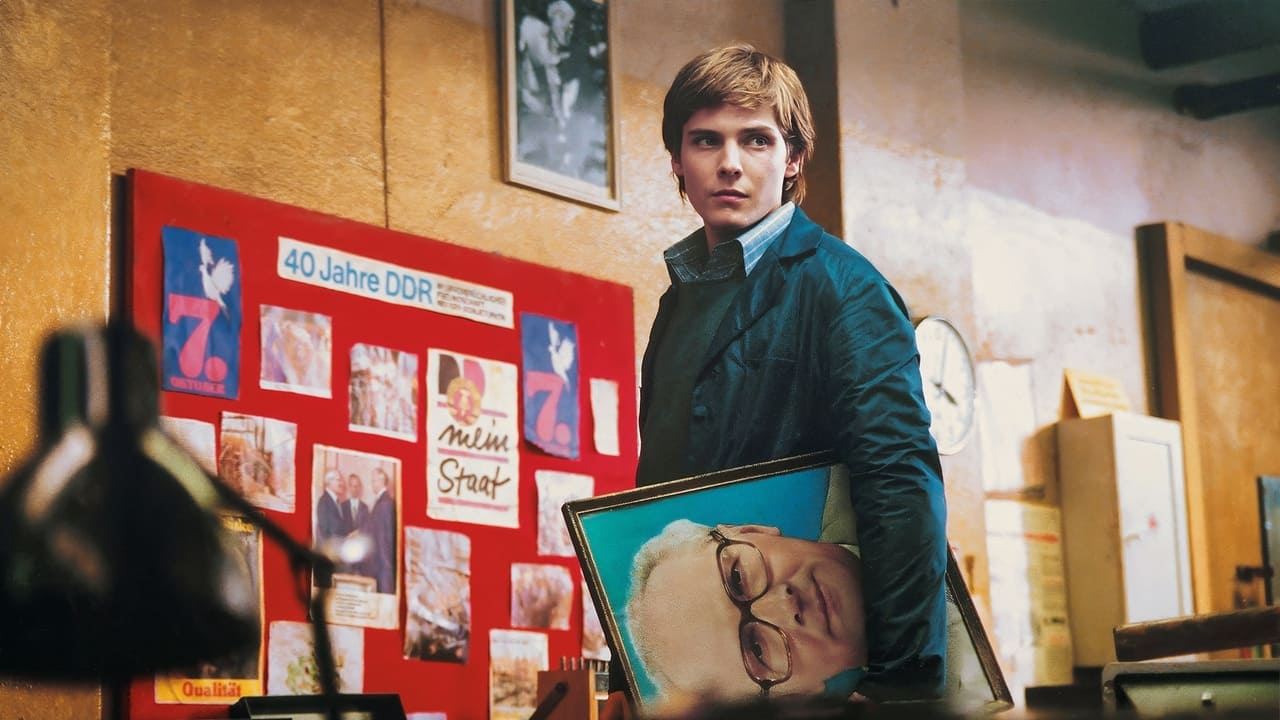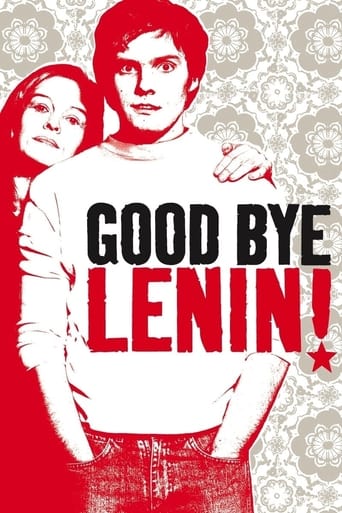marissalozser
I enjoyed this movie. Alex's sarcasm allows for lots of comedic relief in an otherwise sad movie. This raises an interesting question: is this film a comedy or a tragedy? Although the demise of the mother and the element of their broken family is sad, I still think of this movie as more of a comedy. It's more of a comedy to me because the overall tone is not particularly depressing. Alex's sarcasm creates a more humorous tone. Additionally, this kind of plan would never be possible, even back in 1990. There is simply no way that this could realistically be carried out, which explains why Christiane had an inkling of the truth before anyone told her. The film causes one to think about how they would act in Alex's place. Is it better to lie and protect your mother, or tell the truth to maintain trust (and not have to pull off such an elaborate plan)? I think most would choose the latter.
Jon Fougner
On the occasion of the passing of America's greatest film critic and Hollywood's greatest cheerleader, Roger Ebert, I wanted to reflect on whether his writing will stand the test of time. We often ask whether a given film will hold up, but what about a given review?My most recent screening had been of "Goodbye, Lenin!" (2004), Wolfgang Becker's historical- comical-tragical (as Polonius would have called it) story of a GDR loyalist whose son, once she emerges from a coma during which the Berlin Wall has fallen, doesn't dare break the news to her. Sure enough, Ebert had reviewed the German film. And so two extra layers of translation in which the message might be lost stacked with the one of interest to me: from the setting (1989) to the filming (2003), and from the filmmaker's audience (Germany) to Ebert's (the United States).Perhaps for the latter reason, the review is not among Ebert's longest or strongest. His wit is at its most inspired and devastating when fulminating over a train-wreck like Sex and the City 2: "I don't know a whole lot about fashion, but I know something about taste . . . ." With Lenin!, on the other hand, he admits being on his heels: "it is no doubt filled with references and in-jokes we do not quite understand." (More: http://www.rogerebert.com/reviews/goodbye-lenin-2004)But I think the most important thing that Ebert's review doesn't understand -- or, to be more fair, doesn't acknowledge -- is the thematic role of Christiane's (Kartis Sass) deception regarding her family's history and her relationship with the socialist party. Summing his criticism, Ebert writes: "What 'Goodbye, Lenin!' never quite deals with is the wrongheadedness of its heroine. . . . How many of us lie to our parents, pretending a world still exists that they believe in but we have long since moved away from?" But has Christiane's son Alex (Daniel Bruhl) really moved away? It seems rather credulous to believe that the extreme lengths he goes to to freeze his mom in historical stasis (even enlisting an ex-cosmonaut to create fake news broadcasts, as Ebert notes) are really for his mom's health (the doctor has admonished that she must have no surprises). Peering a bit beneath the surface, we surmise that all this play-acting is for Alex's own benefit, at least in part. Hence his concession that "the GDR I created for her increasingly became the one I dreamed of."If so, then it's congruent that it turns out not to be the case that her love affair with the party is the result of his with some Western strumpet (as we were led to believe), but rather that her husband's flight was the result of the party's betrayal of him -- and, by extension, her. On that reading, her loyalty is not just "emotional compensation" for his desertion, as Ebert suggests, but rather an outright charade, thus making her son's cocooning of her from the Good News all the more tragic. Thus, Becker's central theme is less about the folly of patronizing our parents in their antiquation, and more about the folly of catering to anyone when we don't actually know what they want.Even if I'm wrong, and Alex really is just trying to follow doctor's orders, the point still stands: he's trying to avoid giving her a negative shock, but it turns out that she might not take the news of the end of the GDR so negatively after all. Indeed, when he unspools to her his fabrication of the reunification -- replete with tales of West German refugees from capitalism flooding into their very neighborhood -- her concern seems less around the triumph of socialism and more around being helpful herself. (On that score, she's kindred spirits with Ebert, who drew strength and joy from his prolific writing for others' benefit, tweeted with abandon in spite of himself, and was known to scribble notes during screenings and rip them, page by page, from his notebook, to be gathered during the closing credits and assembled into his always- anticipated reviews.) One of her best punchlines -- "Coca Cola was a socialist invention?" -- sounds more in amazement than party pride.But, returning to my project, does this alleged missing of the mark have anything to do with the 9 years since Ebert's review? I don't think so. Whether Becker's point is better captured by Ebert's read or mine, the intervening period neither adds to nor subtracts from the audience's ability to find it. By choosing to film (Becker) and write about (Ebert) such enduring cultural touchstones as Coca Cola and Burger King, the two maximize the likelihood that they'll remain recognizable for future audiences. And, more importantly, by anchoring even more firmly on timeless themes (family more than fast food; "taste" more than "fashion"), the two maximize the likelihood that they'll remain relevant for them.

